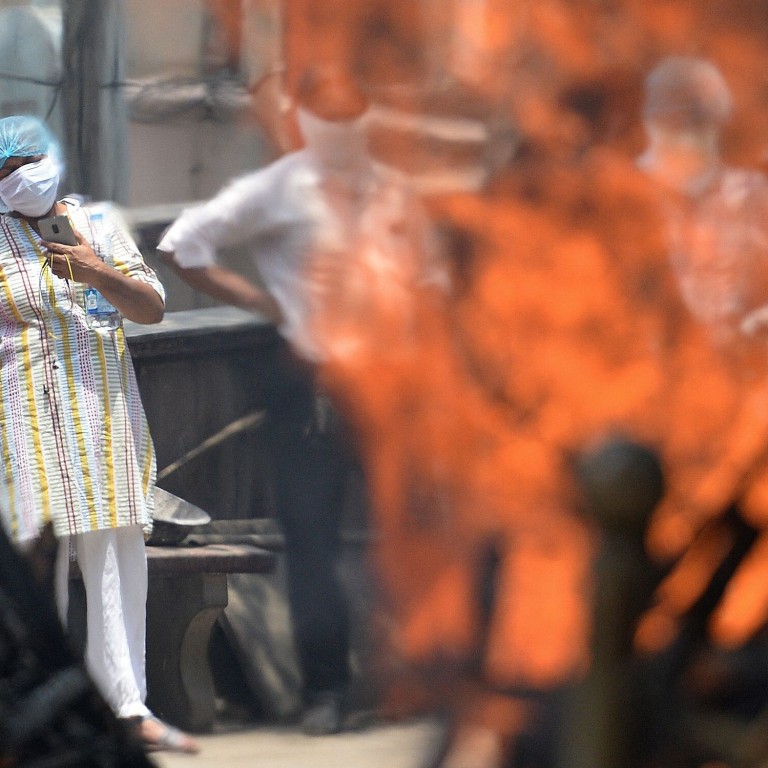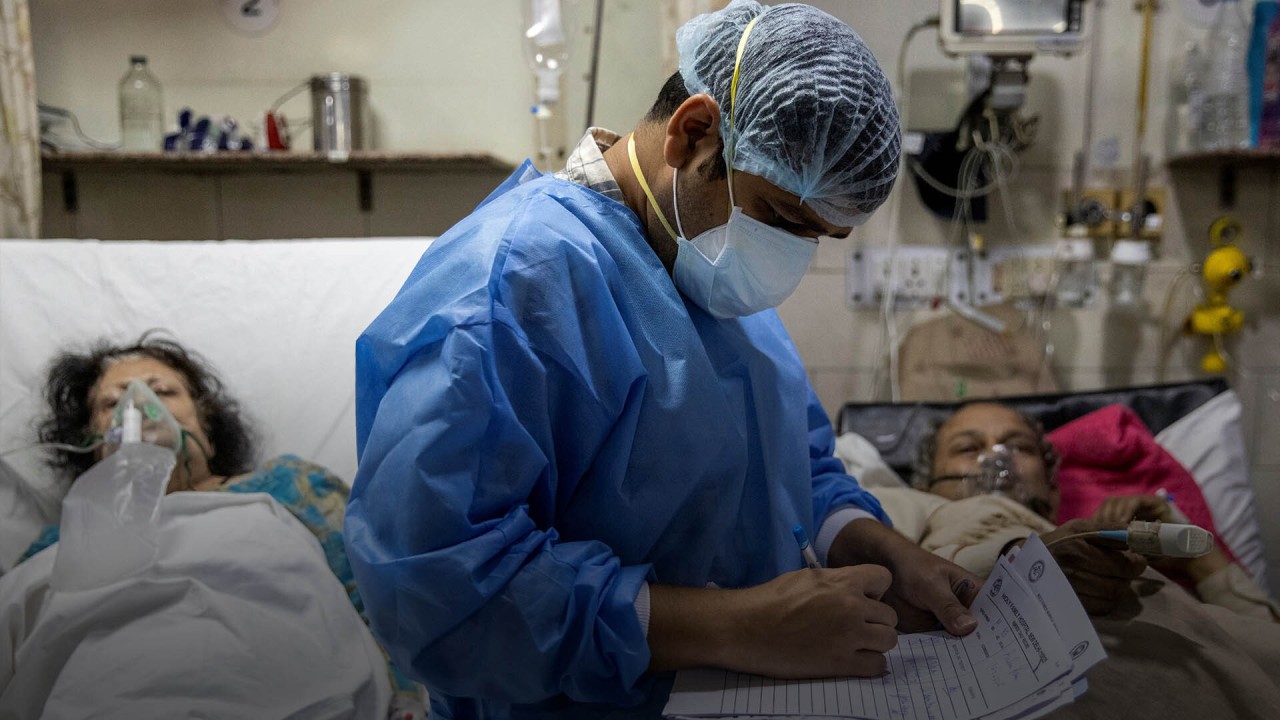
Coronavirus: WHO says India a ‘huge concern’ as deaths continue upswing
- During the past week, the South Asian nation has added about 1.7 million new cases and more than 20,000 deaths
- Police are patrolling the banks of the Ganges in the northern Uttar Pradesh state to stop any dumping of corpses in the river
In the past 24 hours, India had 326,098 new infections, taking its tally to 24.37 million, with 3,890 deaths, for a toll of 266,207, health ministry data showed. But the slow growth may also reflect test rates that are at their lowest since May 9.
In Geneva, the WHO’s chief said India was a huge concern, with the second year of the pandemic set to be more deadly than the first.
Tedros Adhanom Ghebreyesus’s remarks to an online meeting came after Indian Prime Minister Narendra Modi sounded the alarm on Friday over the rapid spread of the disease through the vast countryside.
‘I won’t see my kids again’: the black fungus nightmare facing India
During the past week, the South Asian nation has added about 1.7 million new cases and more than 20,000 deaths in a second wave of infections that has overwhelmed hospitals and medical staff.
Police are patrolling the banks of the Ganges in India’s most populous state of Uttar Pradesh to stop any dumping of corpses in the river, a government official said.
“We keep recovering 10 to 20 bodies every now and then,” Navneet Sehgal, a spokesman for the northern state, which has more people than Brazil, said.
“We have put a police force on the river and have also sent communications to local authorities that this practice be stopped.”

03:41
Junior doctors making life and death choices in India as Covid-19 ravages the country
Sehgal was denying a report in The Asian Age newspaper, citing federal government sources, that nearly 2,000 bodies of possible virus victims had been pulled from the river in the past week or so.
Some riverside villages did not cremate their dead in line with Hindu tradition during certain periods of religious significance, he added.
The state’s virus infections officially peaked late last month but experts say many more cases are going undetected in the villages home to the bulk of the state’s 240 million people.
Cases have fallen steadily in some Indian states hit by an initial surge in infections, such as Maharashtra and the capital New Delhi, after they imposed stringent lockdowns.
Delhi’s positive cases as a share of tests have fallen to 11 per cent, Chief Minister Arvind Kejriwal told a news briefing, from more than 30 per cent early this month.
How missteps led India into an oxygen shortage amid a Covid-19 surge
But the eastern state of West Bengal, which held elections last month, had its biggest single-day spike. On Saturday, it ordered a statewide lockdown for 15 days until the end of May.
Some other states, such as Karnataka in the south, have also reported recent rises, implying an fall in overall cases is still some time away.
Indian banks have lost more than a thousand employees and many more are infected with Covid-19, S. Nagarajan, the general secretary of the All India Bank Officers’ Association, said on Saturday.
Prime Minister Boris Johnson vowed to accelerate Britain’s vaccination programme, reducing the gap between doses for the vulnerable, to try to contain a fast-spreading variant first detected in India.
Johnson’s comments came soon after India accepted a government panel’s recommendation to double to 12 to 16 weeks the gap between doses of the AstraZeneca vaccine.

